Lore:Daggerfall
This article is about the city. For the kingdom, see Daggerfall (kingdom).
| Daggerfall | |
|---|---|
| Type | Settlement |
| Continent | Tamriel |
| Province | High Rock |
| Region | |
| Demonym(s) | Daggerfallian[UOL 1] |
| Appears in | Arena, Daggerfall, ESO |
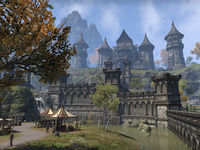
Daggerfall (also called Daggerfall City)[1][2] is the capital city of the eponymous kingdom in High Rock,[3] as well as the largest city in the province's western region, Glenumbra. Daggerfall is one of the oldest cities in the province[4] and by virtue of its age, prosperity, and prominence, it was considered the de-facto capital of High Rock by the Third Empire.[5] The city also wields vast cultural influence across southern High Rock and its people have an obsession with the past and quest for glory.[4][6][7]
Layout and Geography[edit]
Daggerfall is a large walled city on the coast of High Rock, specifically on the north side of a bay at the southernmost point of Glenumbra, around where the Iliac Bay meets the Eltheric Ocean.[8][9] As the Book of Life puts it, Daggerfall is located north of the highest bluffs, south of the moors, west of the hills, and east of the sea.[3]
But to be more specific, Daggerfall is built at the top of a tall, steep hill that towers over the coast but gradually inclines down into the forests to the northeast. The city is cradled in a river valley of an unnamed mountain that anchors the western peninsula of High Rock and is generally well-defended.[10] Several islands exist just outside of Daggerfall, namely the Glenumbra Banks[11] and Sword's Rest Isle.[12]
The mountain's caves extend endlessly under the earth and have been used by people for years. The caves underneath Daggerfall are described as measureless, and legend has it that the Horn of Summoning was buried somewhere beneath it.[13] On a more tangible and visible surface, the Themond family of Bretons built a large mine behind the Daggerfall Cathedral, and after its abandonment, deceased members were buried in front of it.[14] Inconspicuously, the city's outlaws refuge lies underneath Castle Town and has two entrances, one on the eastern wall near the city gates and another hidden in the Harbor District. It was created from a part of the city's sewer system[15] and is even used by people from outside like the Red Rook bandits of King's Guard.[16] Daggerfall is neighbored by several settlements, one of which includes Reich Gradkeep to the east.[17]
Daggerfall is divided into several districts but the most important are Castle Town, the northern central district that contains the main city gate and its guildhalls, the Harbor District, which is the city's main port-of-call on the Eltheric Ocean, and the Trade District, the southern district across the river from Castle Town that contains the local marketplace and the Cathedral. There are many landmarks between all of them, such as the lake behind the cathedral and the local wayshrine in northernmost Castle Town. Towering over the marketplace basin and the Harbor District thoroughfare is Castle Daggerfall, the king's seat of power. The path up to the castle is a large set of stairs on a street that connects Castle Town with the Cathedral's lake. The castle itself is at the base of the great mountain, which is also the water source of Daggerfall's river. It flows down into the cathedral lake from the west and further down into the marketplace basin from the north until it splits Castle Town and the Trade District, and leaves the city eastward.[10]
Notable Locales[edit]
|
|
|
Districts[edit]
History[edit]
- For the history of the kingdom and region, see the: History of Daggerfall
Early History[edit]
Historians have surmised that a human settlement of some kind existed where Daggerfall is located since long before recorded history, but the first time it was used to refer to a general area was around 1E 246, during the Skyrim Conquests[3] under High King Vrage and the Nordic Empire.[5] According to the Nord's census, the Book of Life, Daggerfall's population was two-hundred and sixteen people and these people typically thrived on the land as coastal fisherfolk, and grazed on the fertile land. The settlement thrived under the Nords and even though High King Borgas' death marked the decline of the Nordic Empire, Daggerfall continued to prosper as it expanded militarily.[3]
Cities such as Daggerfall and nearby Camlorn lost touch of its Nordic roots and became Bretonic over years of assimilation and commerce.[22] At some point in time,[Note 1] the kingdom was ruled by King Corcyr I, who banned Dark Elves from entering the city.[23][Note 2] Years later after his successor, King Edward drove out the Nords from High Rock, the weapon he used to achieve this, the Horn of Summoning was reportedly buried in Daggerfall's extensive caves.[13] The Direnni Hegemony wielded the most power at the time and when they went to war with the Alessian Order, Daggerfall served as a minor base of operations. One of Castle Daggerfall's first residents was Raven Direnni, the master enchantress who helped secure victory in the Battle of Glenumbra Moors.[3]
In 1E 950, King Joile declared war on the kingdom of Orsinium and led Daggerfall's armies into the Siege of Orsinium. Many Breton warriors plundered ivory from the Orcs,[3] and when Orsinium's downfall opened trade throughout the Bjoulsae River, Daggerfall's ivory trade played a big part in the region's economic expansion.[24] This inadvertently brought about the kingdom's largest rival in the form of Wayrest.[3] After Empress Hestra incorporated High Rock into the Alessian Empire in 1E 1029,[25] the city flourished.[5] In 1E 2200, however, the Thrassian Plague had spread across Tamriel, starting from the continent's western harbors. In High Rock and the Iliac Bay, Daggerfall was the first port to contract the disease and in turn, the Iliac Bay's population drastically decreased.[3][26]
Daggerfall in the Second Era[edit]
In 2E 455, during Queen Donella's reign,[1] the city was terrorized by a serial killer known as the Daggerfall Devil, who claimed dozens of innocent lives. In early Evening Star, the killer was caught and due for execution. However, he was able to evade death by making a deal with the Daedric Prince of Fate and Hidden Knowledge, Hermaeus Mora. On the 7th of Evening Star, the Daggerfall Devil escaped to Apocrypha.[27]
Dozens of years after the Battle of Granden Tor, the kingdoms of High Rock were at peace, and ships from Daggerfall traded in every port across Tamriel. That peace was threatened, however, when Emperor Durcorach of the Longhouse Emperors invaded High Rock in 2E 541. After a lengthy siege on Wayrest that yielded no results,[28] the Emperor diverged his forces and set his sights on Daggerfall.[29] As the Reachmen were about to mount their attack on the city's gates, they were flanked by Emeric of Cumberland and his army of Wayrest's finest warriors. The Emperor was defeated by Emeric and the King of Daggerfall, Bergamot was able to finish off the rest with his group of knights.[28]
Only a fortnight later, the kings of High Rock banded together to create the Daggerfall Covenant,[28] with Wayrest as its capital and much to the chagrin of Daggerfall's citizens. Daggerfall was quick to poise their central position in the Covenant but with Wayrest's growth thanks to Cumberland family, Daggerfall could not see it through. The people's sentiment also lived in Bergamot's successor, Folbert the Wide, who believed if Wayrest were to overstep, he would take that opportunity to put Daggerfall back in the limelight.[1] In 2E 582, a conspiracy was uncovered involving the burgeoning Bloodthorn Cult and their assassination attempt on King Casimir. With help from Captain Aresin of the city guard, an adventurer was able to defeat the Reachmen assassins and save the King. For their service, King Casimir gave the adventurer the task of investigating the Bloodthorn Cult and their leader, Angof as they wreak havoc across Glenumbra.[30][31]
Daggerfall in the Third Empire[edit]
By the late Second Era, Daggerfall was recognized by the Third Empire as the de-facto capital of High Rock, by its antiquity, prominence, and prosperity.[5] In a map of other capitals in the Empire, Daggerfall is listed among them.[32] The city was in relative peace during these early years, although not long after the Battle of the Bjoulsae, Admiral Vasi Hadrach was assassinated by rebel Reachmen in a Daggerfall brothel.[33] Years later under Senecus Goddkey's reign over Sentinel, nobles from Daggerfall vacationed to the capital city across the bay.[34]
During the Imperial Simulacrum in the late Third Era, the city-state of Daggerfall was an active settlement. It was ruled by King Tristyctor and had a rivalry with Camlorn and the Imperial City.[35] A census was held in 3E 401 and revealed Daggerfall's population to be over 110,000 people.[3] Not long after, the War of Betony broke out between the Kingdoms of Daggerfall and Sentinel, and although the former emerged victorious, the events of the war have left a significant impact on Daggerfall and its people.[36]
In 3E 404,[36] on the 13th of Rain's Hand (the Day of the Dead)[37] King Lysandus' ghost returned and began haunting the city's streets at night with a horde of spirits. As he roamed around screaming vengeance, ghosts and wraiths terrorized the local populace. The city guard could barely fight back and as more of them died fighting, more spirits joined Lysandus.[36] In 3E 405, an Agent of the Blades traveled to the Iliac Bay and overtime, avenged the King by taking down the person who killed him, Lord Woodborne. Whether that was actually killing him in his home in Wayrest or revealing the truth is unknown, but with his downfall, the curse on Daggerfall city was lifted.[38]
Known Rulers[edit]
For a list of the kingdom's monarchy, see this section in the following article: Daggerfall.
Culture and Society[edit]
Daggerfall and the surrounding Daenia region are the home of Breton society's quest obsession. Young people from the lower and serf classes partake in heroic tasks and adventures to rise to the ranks of nobility.[6] The people are also obsessed with their past,[7] despite Bretons being unsentimental about history.[5] The city recognizes a couple of holidays much like the rest of the kingdom, namely Dancing Day on the 23rd of Midyear[39] and the Day of the Dead on the 13th of Rain's Hand.[37]
The kingdom's local temple is the Temple of Kynareth, whose patron deity, Kynareth is considered the kingdom's goddess-protector.[36] Two of her temples are located in the city but Daggerfall's main place of worship is the Daggerfall Cathedral in the Trade District, which worships the Divines as a whole.[40] The Knights of the Dragon is the kingdom's knightly order and has two garrisons in the capital city.[9] Although sometimes the Kingship of Daggerfall is known as the Dragon,[41] the dragon on the kingdom's banner represents Akatosh.[42]
Many noble Breton houses live in Daggerfall and have varying influence in the kingdom. One of these houses is House Silvelle, a noble trading house that took in the former heir of another local house, Bastian Hallix as a troubleshooter.[43] Others include, the Baelbornes,[44] the Bouchends,[45] House Diel,[46] the Laurents,[47][48] and the Themonds.[14]
Daggerfall is a central trading hub in western Tamriel and the Iliac Bay,[3][28] although, its importance has lessened since the rise of Wayrest.[5] Despite this, Daggerfall sees imports from all over the continent. Smugglers from Morrowind to the east sell scuttlers and bantam guars as pets[49] while some illicitly smuggle skooma.[50] The Larimar stones from the Systres are known as "sea-stones" by the merchants in Daggerfall because of their color.[51] Locally, the city's metalworks creates steel that the Knights of the Silver Rose use for their axes.[52] Pranks & Pleasures was a popular card game in Daggerfall during the mid-Second Era.[53]
The Merchants Guild has a chapter in Daggerfall and members in good standing are awarded a small, golden anvil emblematic of Zenithar.[54] The Architects Guild were also present in Daggerfall, with one of their most well-known projects being Castle Thorn in the mountains of Skyrim.[55]
Historically, there is a summer shipping route between Daggerfall and Solitude, and since then, Northpoint[56] and Morkul Stronghold were added as stopovers on the route.[57] An alternate route used by the East Empire Company in the Fourth Era branches Daggerfall with Hegathe and Farrun.[58] People will use the phrase, "from Daggerfall to Necrom" to emphasize the size of something since these are the furthest anchored cities on Tamriel.[59][60]
Many people sail into Daggerfall's harbors but from the north, people are advised to look out for the Glenumbra Banks, shifting sand bars that are constantly changing throughout the seasons. Local pilots in the city are especially wary of the banks between Mid Year and Sun's Height and are left wondering how they can change so drastically overnight. Some people believe that mythical leviathan, Ithguleoir fills the old bank channels and dredges new ones.[11]
Gallery[edit]
Notes[edit]
- Arena was originally conceived as a fighting game featuring a tournament that took the player to each of Tamriel's cities to challenge different gladiatorial teams. According to a file from that stage of development left behind in the final game, Daggerfall's gladiatorial team would have been called "the Guardians".[UOL 2]
- The city was planned to appear in the cancelled Oblivion game for PSP.
See Also[edit]
- For game-specific information, see the Arena, Daggerfall, and Elder Scrolls Online articles.
Books[edit]
- A History of Daggerfall by Odiva Gallwood — A relatively unbiased analysis of Daggerfall and the Iliac Bay
References[edit]
- ^ a b c The Improved Emperor's Guide to Tamriel: High Rock — Flaccus Terentius, 2E 581
- ^ First Scroll of Baan Dar — Arkan the Gifted
- ^ a b c d e f g h i j A History of Daggerfall — Odiva Gallwood
- ^ a b Glenumbra's Towns and Cities — Ansur Belote
- ^ a b c d e f Pocket Guide to the Empire, 1st Edition: High Rock — Imperial Geographical Society, 2E 864
- ^ a b Glenumbra's People — Aldous Brousseau
- ^ a b Wayrest, Jewel of the Bay — Sathyr Longleat
- ^ Map of Glenumbra – The Elder Scrolls Online
- ^ a b c d e f g h Daggerfall (city) in Daggerfall
- ^ a b c d e f g h i j k l m Daggerfall in ESO
- ^ a b Beware the Glenumbra Banks — Garric the Pilot
- ^ Sword's Rest Isle loading screen text in ESO
- ^ a b c The Real Barenziah, v 4 — Anonymous
- ^ a b Tsiniuc's dialogue in ESO
- ^ Daggerfall Outlaws Refuge in ESO
- ^ Daggerfall Outlaws Refuge loading screen text in ESO
- ^ Map of High Rock – The Elder Scrolls: Arena
- ^ Banker's Bet — Porbert Lyttumly
- ^ Ilessan Tower loading screen text in ESO
- ^ Crafting Motif 71: Coldsnap Style — Landal Gevont, Scholar of Goblins, Invisible College of Daggerfall
- ^ Mystery of Talara, v 1 — Mera Llykith
- ^ Pocket Guide to the Empire, 3rd Edition: The Sons and Daughter of the Direnni West: High Rock — Imperial Geographical Society, 3E 432
- ^ King Edward, Part IV — Anonymous
- ^ Tusks of the Orc-Father antiquity codex entries in ESO: Greymoor
- ^ Bangkorai, Shield of High Rock — King Eamond
- ^ 1. The Thrassian Plague
- ^ Pact of the Daggerfall Devil
- ^ a b c d Triumphs of a Monarch, Ch. 3 — His Majesty King Emeric
- ^ Secret History of the Longhouse Emperors — Councilor Vandacia
- ^ Blood and the Crescent Moon story quest in ESO
- ^ Bloodthorn Assassins story quest in ESO
- ^ Map of Tamriel – Provinces of Tamriel
- ^ Amiel Richton' biography — The Elder Scrolls Adventures: Redguard
- ^ Pocket Guide to the Empire, 1st Edition: Hammerfell — Imperial Geographical Society, 2E 864
- ^ Daggerfall location and rumors in Arena
- ^ a b c d The Daggerfall Chronicles/Narrative
- ^ a b Day of the Dead holiday description in Daggerfall
- ^ Lysandus' Revenge story quest in Daggerfall
- ^ Dancing Day holiday description in Daggerfall
- ^ Daggerfall Cathedral in ESO
- ^ Knights of the Dragon
- ^ Pitof's dialogue in ESO
- ^ Meet the Character - Bastian Hallix — Pungent Adder
- ^ Athel Baelborne's dialogue in ESO
- ^ Bastian Hallix's dialogue in ESO: Blackwood
- ^ Contract with House Diel — Lord Alain Diel
- ^ Stibbons' dialogue during the "The Jeweled Crown of Anton" in ESO
- ^ Lady Clarisse Laurent's dialogue during the "The Jeweled Crown of Anton" quest in ESO
- ^ Morrowind Fauna, Part One — Holia Asellio
- ^ Cap'n Dugal's Journal, Part 1 — Captain Torradan ap Dugal
- ^ Larimar Gems antiquity codex entries in ESO: Greymoor
- ^ Crafting Motif 106: Silver Rose Style — Chief Archivist Bartholomew
- ^ Pranks & Pleasures Card Game treasure text in ESO
- ^ Golden Anvil of Zenithar treasure text in ESO
- ^ Architectural Survey Summary Report — Tarnolvar, Chief Surveyor of the Architectural Guild, Daggerfall Branch
- ^ Northpoint: An Assessment — Chancellor Regina Troivois
- ^ Naryu's Journal/Wrothgar — Naryu Virian
- ^ Map of the East Empire Company — The Elder Scrolls V: Skyrim
- ^ Tsrava's dialogue in Oblivion
- ^ Sondivel's Journal — Sondivel Ulves
- ^ Pocket Guide to the Empire, 1st Edition: Skyrim — Imperial Geographical Society, 2E 864
Note: The following references are considered to be unofficial sources. They are included to round off this article and may not be authoritative or conclusive.
- ^ Ted Peterson's Posts in Campaign 7/The Evening Star Parade – Loranna's RP
- ^ Original TES: Arena texts at the Imperial Library
.jpg/200px-LO-map-High_Rock_(Anthology).jpg)
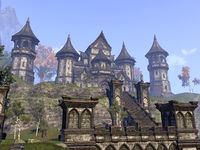
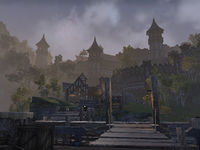
.png/200px-DF-place-Temple_of_Kynareth_(Daggerfall).png)
.jpg/200px-ON-place-Daggerfall_Overlook_(manor).jpg)
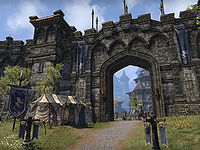


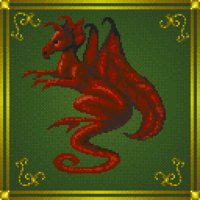
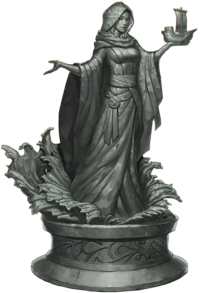
.jpg/200px-ON-place-Mages_Guild_(Daggerfall).jpg)
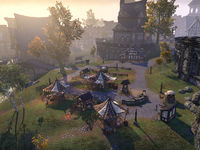
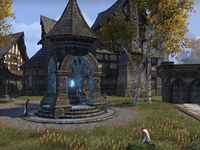
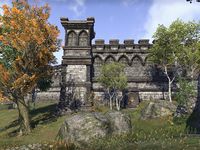
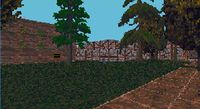
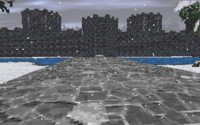
.jpg/200px-DF-map-Daggerfall_(city).jpg)
